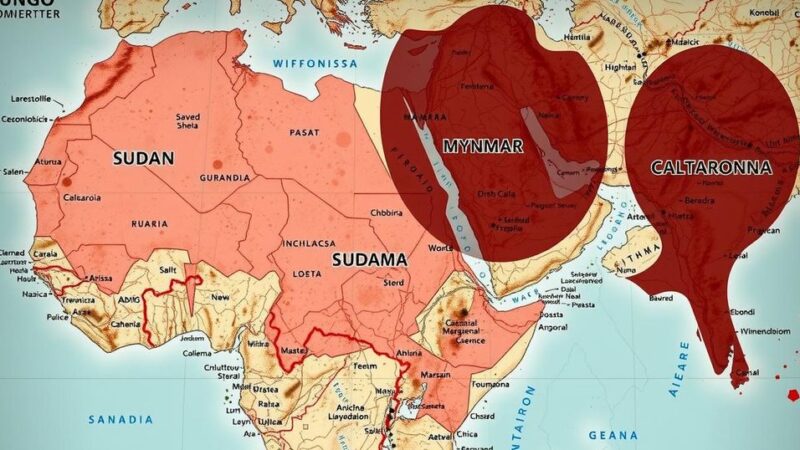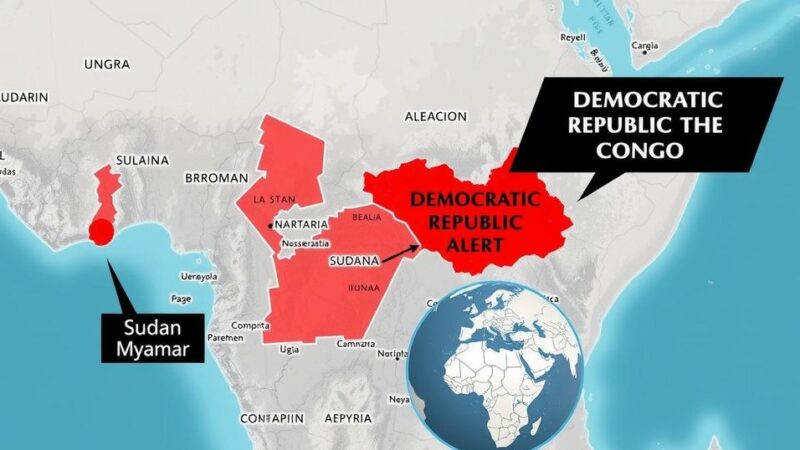In 2024, climate disasters caused over $200 billion in damage, led by Hurricane Milton and Hurricane Helene. The US was the most affected nation, facing 71% of total losses. Experts link the increasing severity of these events to fossil fuel emissions, highlighting a critical need for transition to renewable energy and considering the human toll on less insured communities.
The year 2024 witnessed significant economic damage due to climate-related disasters, totaling over $200 billion, as reported by Christian Aid. The most severe incident was Hurricane Milton, which devastated parts of the United States in October, causing approximately $60 billion in losses and claiming 25 lives. Following close behind was Hurricane Helene, which impacted the US, Cuba, and Mexico in September, resulting in $55 billion in damages and 232 fatalities.
Additional disasters included catastrophic floods in China with losses of $15.6 billion and 315 lives lost, as well as Storm Boris and subsequent flooding across Spain and Germany, which incurred at least $14 billion in damages and led to 258 fatalities. The prevalent intensity and frequency of these disasters are attributed to the ongoing climate crisis, exacerbated by fossil fuel emissions. Patrick Watt, CEO of Christian Aid, emphasized the artificial nature of the increasing severity of such events, asserting, “There is nothing natural about the growing severity and frequency of droughts, floods, and storms.”
The report underlines the disproportionate impact on the United States, which suffered 71 percent of the total losses from the worst disasters this year. Even when excluding hurricanes, the economic toll surpassed $60 billion due to a series of damaging storms. These figures, primarily based on insured losses, likely underestimate the full financial impact of the disasters.
In understanding the broader implications, it is crucial to recognize the human cost associated with these climate disasters, especially in developing regions lacking adequate insurance access. For instance, Cyclone Chido in French Mayotte may have resulted in over 1,000 fatalities, while severe droughts in Colombia jeopardize the livelihoods of Indigenous communities reliant on the Amazon River. In Bangladesh, heatwaves affected approximately 33 million individuals, and Southern Africa faced significant challenges due to drought impacting food and water security for 14 million people across several nations.
Dr. Mariam Zachariah from the World Weather Attribution initiative noted that this report merely captures a portion of the ongoing climate devastation in 2024. “Many more droughts, heatwaves, wildfires and floods not included are becoming more frequent and intense. Most of these disasters show clear fingerprints of climate change.”
In light of these challenges, 2024 is projected to be one of the hottest years on record, with global temperatures nearing the critical threshold of 1.5°C above pre-industrial levels. As scientists warn of the dire consequences of surpassing this limit—established in the Paris Agreement—climate experts are advocating for an urgent transition from fossil fuels to renewable energy sources. Professor Joanna Haigh echoed the need for immediate action, noting the economic repercussions of these extreme weather events as a critical motivator for leaders to invest in clean energy technologies for a sustainable future.
The article addresses the economic repercussions of climate-related disasters experienced in 2024, highlighting their growing frequency and intensity, attributed largely to climate change exacerbated by fossil fuel emissions. It refers to a report by Christian Aid, which compiled data on the financial costs of the ten most damaging disasters this year. This context provides insight into the devastating impact of extreme weather events on communities worldwide, both economically and in human terms, particularly in countries less equipped to manage such calamities.
The report by Christian Aid elucidates the alarming economic toll of climate-related disasters in 2024, emphasizing that severe weather events are increasingly driven by human-induced climate change. With the United States experiencing the majority of the losses, and numerous vulnerable regions facing critical challenges, the need for urgent action and investment in renewable energy and climate adaptation strategies is more pressing than ever. The findings serve as a stark reminder of the severe and multifaceted impacts of climate change on global communities.
Original Source: www.independent.co.uk







